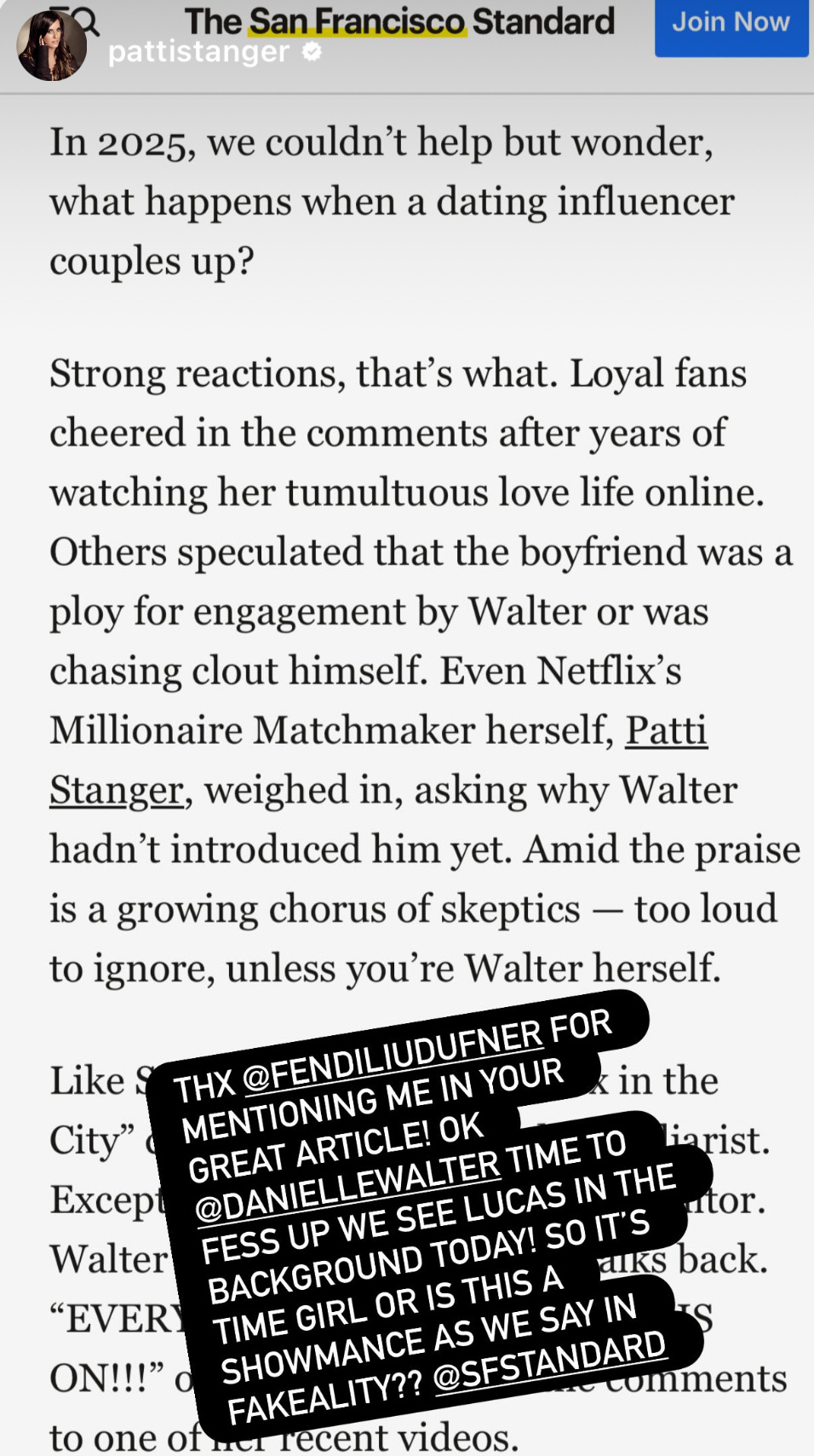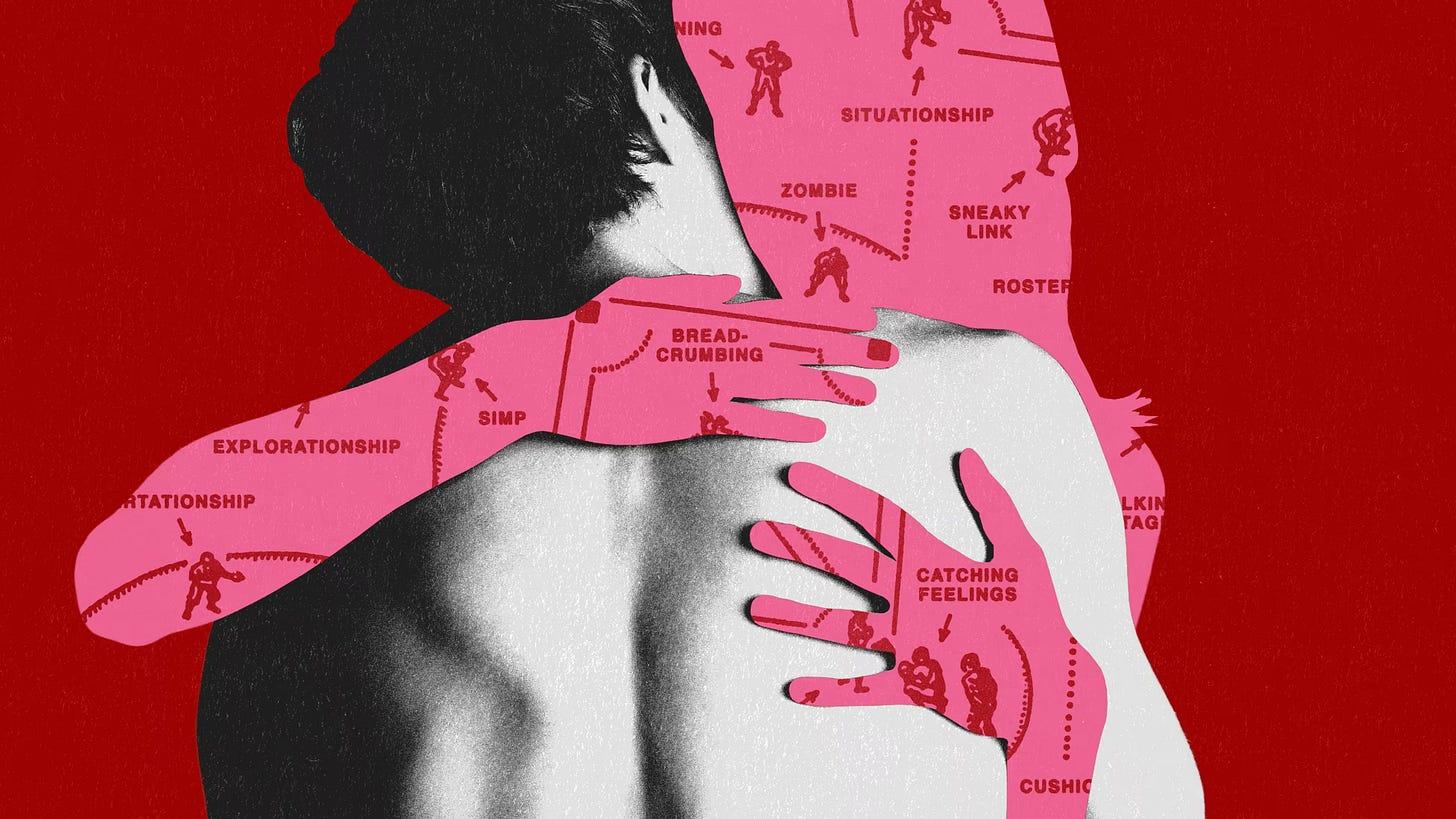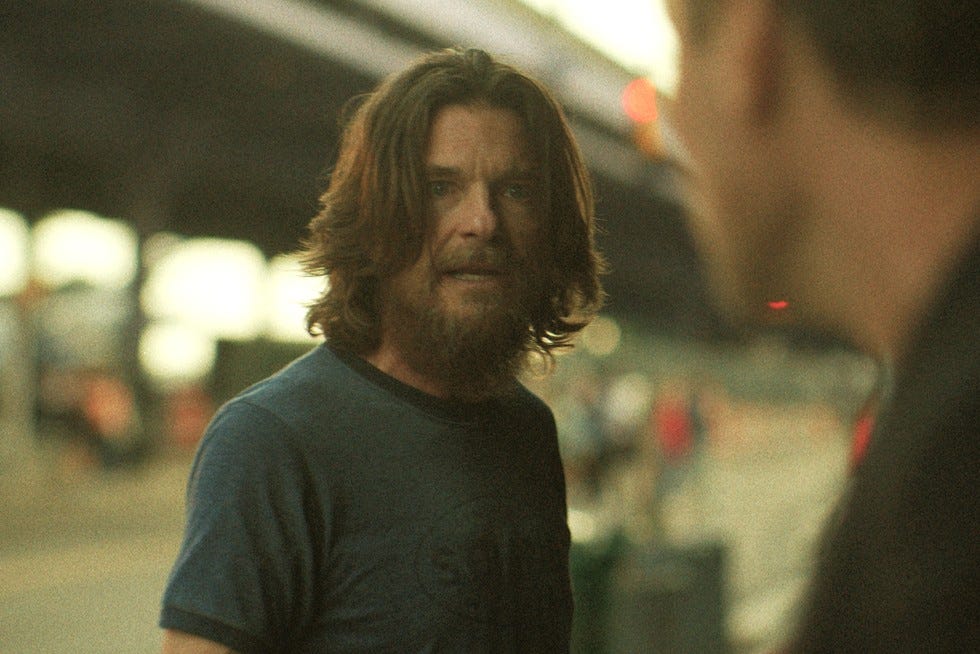My birthday is tomorrow.
Plus, advice from Matthew McConaughey, AI tech for parents, and the perks of making out.
Hey there. Dallas was hot as hell. I’ll think of how much I felt like a rotisserie chicken the next time I want to complain about San Francisco’s mild climate. Speaking of moderation: my 33rd birthday is tomorrow. It feels neither big nor small. I considered rounding up a list of learnings, then remembered those are annoying from anyone who isn’t over 60 or maxed out in another way.
That’s not to say young people can’t serve wisdom. The other week at a bar, a friend asked everyone at the high-top what their favorite life motto was. Mine’s basically Newton’s first law of motion adapted for confused people: Objects in motion stay in motion. Or if you’re a Finding Nemo fan: “Just keep swimming!” as Dory says. Both remind me to keep it moving—metaphorically, although starting with the body often helps. I picked up a walking pad last year and hop on whenever I feel restless.
Part of my bias toward proactivity is learned behavior from my German husband who enjoys the least viable amount of downtime. When he’s not working, exercising, socializing, or pampering his to-do list, he’s scrolling “fintwit” (that’s finance Twitter or X) for a modest thirty minutes before getting back on the horse.
But even before meeting Mo, I had the sense that stagnating, when you don’t want to be, is bad. In 2017, weeks after quitting my corporate job in LA and days before moving to Japan, I gave my roommate and best friend a letter. “I want us to choose pain over complacency (the enemy),” I wrote on a sheet of college-ruled notebook paper. The prose is profoundly cringe—I was 24—but it’s clear I wanted to try again. Consultants and technologists might call this “iterating” or being “agile.”
In July, three months after launching this newsletter for a second time and six months after getting laid off, I crashed out in a coffee shop. (“Crash out” is my favorite slang of the past year; it melds the catastrophe of “crashing” with the outer limits of coherence: “to pass out,” “to knock out,” “to tap out.”) I had the best seat in the house—tucked away, outlet and window-adjacent—yet I couldn’t produce a single word. It was heavier than writer’s block; I doubted everything I was doing. I texted a writer friend and we discussed the “media’s traffic apocalypse” and how I could pivot. After hours of stewing, I packed it in only to get into a fight with Mo once I got home because I was sweaty and grumpy, and he dared to exist.
I was fine by dinner. But that night, I put the object back in motion and emailed an influencer I wanted to interview. Two days later, I pitched The San Francisco Standard a column. Three days later, I emailed a writer I look up to and asked if the pursuit of writing is “worth it.” (She said yes.) A week later, I started a German class in Berkeley. (Learning how to say “The bear is intelligent and nice” on Duolingo wasn’t cutting it.)
My conversation with the influencer led to this story and this one. Reaching out to the editor turned into an in-office meeting, two published articles, and an ongoing gig. The second article yielded an invite from a journalist to an AAJA event—the very organization I’ve been meaning to get more involved in for years. The German class did little besides reinforce my reluctance to organized learning.
I reframed The FLD from random, albeit polished, “musings” (gag) to a modern love digest written with the same verve as a tech or business newsletter. Nothing incentivized me to find a direction more than attending a Substack event and fumbling whenever anyone—including Hamish McKenzie himself—asked the very normal and expected question, “What do you write about?”
I hate the question, but now I have an answer. The real one—true for every writer, though less appropriate in an interview or at a dinner party—is: I write about whatever I want, or what I’m paid for, and hope someone reads it.
It’s a shame Sarah Jessica Parker doesn’t get a kickback every time someone borrows her Sex and the City character’s name and likeness. The "brunette Carrie Bradshaw of San Francisco" got a boyfriend, and I wrote about the controversy that followed for The Standard. It’s not a hit piece. In fact, I approached it as if Danielle herself were reading it beside me. I did, however, throw ample and well-deserved shade. The Millionaire Matchmaker seems to agree:
In this Note: Relationship advice from Matthew McConaughey, AI tech for parents, “mankeeping,” and the perks of making out.
Have a story or topic I should look into? Write to me at: fendiliudufner@gmail.com. You can also reply to this email if you’re reading from inbox. 💌
Gen Z fears vulnerability. Young people born between 1997 and 2012 are writing their own dating playbook. While a portion are pursuing a traditional path (marriage, monogamy), many prioritize autonomy and aren’t interested in labels or achieving relationship milestones. Some say casual sex is more approachable than holding hands or even having an honest conversation.
A slowdown in sex after the honeymoon stage is NORMAL. Alex Cooper of Call Her Daddy said it again and again, even citing her own relationship with her husband. (This was my first time listening to the podcast. I understand the appeal but fear I’m aging out of her core demographic.)
Matthew McConaughey says couples should downsize their mattress for a better connection. “Man, this damn king-size bed is not good for the marriage, man. Get rid of that son of a b----,” said the Academy Award-winning actor, married 13 years. “So we got a queen size where we're shoulder to shoulder. I'm telling you, it's good for your marriage."
If you’re planning to conceive, make sure your prenatal has folic acid, not methylfolate. Both are derivatives of vitamin B9, but some gentrified brands, including Ritual, Needed, and Perelel, claim methylfolate is superior because it’s more “bioavailable.” This hasn’t been backed by science, however, so stick with folic acid, which has been proven to help prevent neural-tube defects, including anencephaly and spina bifida.
Couples are now including activations at their weddings to match up their single guests. The “singles table” has evolved to custom wedding newspapers and a “singles face sheet,” or real-life Tinder board.
AI tech promises to help raise children, but it may also sap intimacy out of parenthood. New apps and bots claim to manage busy schedules, work through difficult conversations, plan events, and even write heartfelt messages to stick inside lunchboxes. While these companions may relieve stress in the short-term, they risk isolating parents and impeding organic community building.
Bad Bunny’s perfect day in Puerto Rico is relatable. On The Late Show, he described waking up early, grabbing coffee, working out, and going to the beach among other things, or as Colbert put it, “boxing a very short person.”
“Mankeeping” is the effort women make to compensate for their male partners’ thinner social networks. Research shows that men have fewer friends than women. Because of this, many rely on their relationships with women, specifically romantic partners, for emotional support. This strains women’s time and well-being. Some media outlets have said this is the reason women are stepping away from dating or done with it altogether. This is likely false, but the hidden labor of keeping a man is gaining visibility.
Making out is important. Especially in long-term relationships, it builds intimacy and revives the butterflies. Most couples who’ve been together for years tend to make out only as a precursor to sex, but it should be a standalone act of intimacy.
Penn Badgley, thoroughly and hilariously, described what it’s like filming a sex scene for his Netflix show You. “I’m not home, but I can imagine that I am. There is no one in front of me, but I can imagine someone is,” he says. “I look in camera. And I hump my ass off.”
On a personal note: Shaggy, loser-ish 56-year-old Jason Bateman in Black Rabbit remains appealing. (And that’s on daddy issues.)







Happy birthday dear Fendi 🎂🍾😘
Happy Birthday, FLD!